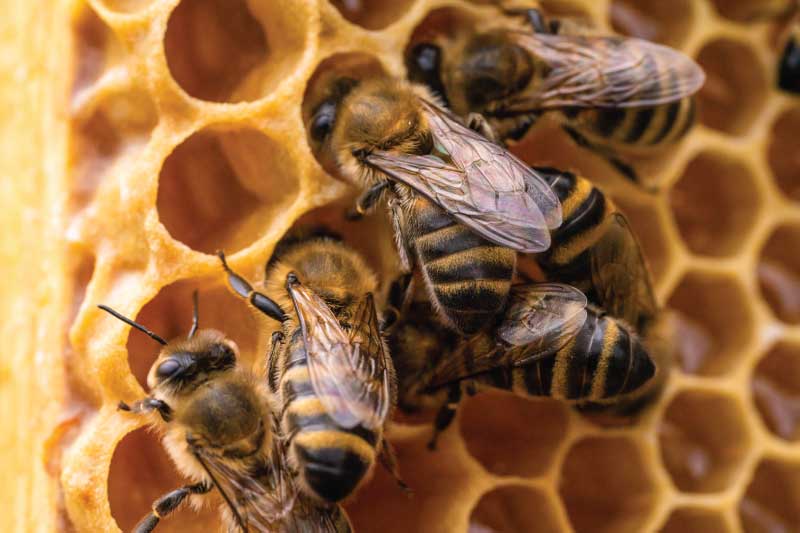Bees are born from cells following the laying of an egg by the queen bee
Have you ever wondered how bees are born? These particular insects have a relatively fast development cycle (about 20 days). The life of every bee begins when the queen bee lays an egg in the cell.
The hexagonal cells present in the hive are built not only to store honey but also to host the development of the larvae.
The queen bee is the one who deals with reproduction. Being the only one capable of being fertile, the queen defines herself as the "mother of all bees". It is able to decide in advance the sex of the larvae as it is possible to determine the birth of male and female individuals with specific egg production.
From fertilized eggs only female bees will be born while from unfertilized eggs will be born the males, or the drones .
Let's find out together what are the stages of development of a bee and how it is born.
Egg deposition in the hexagonal cell
As already mentioned, the life of a bee begins with the laying of an egg . The queen checks the available cells and inserts fertilized eggs in the smaller cells for the development of the females and unfertilized eggs in the larger cells.
A queen who is in good health and at the peak of her strength, is capable of laying around 2,000 eggs per day. Once the egg is laid, it will hatch after three days. From here a small larva will be born.
The nourishment of the larvae
Each larva changes its external cuticle at least 5 times during its growth. This process is referred to as “ mute ”.
All the larvae in the cells are fed the same way. For the first three days they will be entitled to royal jelly , while subsequently they will be fed exclusively with honey and pollen .

Royal jelly is in fact considered as a delicious food and is only given to the larvae present in the royal cells destined to become queen bees . Furthermore, every queen bee has the right to feed on this substance throughout its life and not only when it is in the larval state. It is precisely for this reason that queens develop differently from other bees.
The nourishment of the larvae is up to the nurse bees , which take care every day of introducing pollen and nectar into the cells where new births are found.
What happens on the eighth day? The larvae become pupae
By the eighth day after egg laying, the larva has developed into a pupa . Once at this stage, the mature larvae and therefore the pupae are still in the cells, which are sealed inside with a wax plug . It is at this time that most of the cells are capped .
Metamorphosis and the birth of bees
Arriving at the 10th day after egg laying, the larva makes its last moult. From this moment on, the metamorphosis begins. The larva then transforms and reaches the shape of an adult bee .
After this phase, arrived at the 20th day, the very young worker bee is ready for her birth. She begins to rub her body against the walls of the cell and on the twenty-first day she breaks the wax lid with her jaws. At this point the bee comes out of the cell and is ready for its new life in the hive .
The young workers who have just come into the world start collaborating with the swarm right away. The bees, with a few moments of life, already begin to clean their cells to house the eggs that will be laid later. Here's how bees are born and develop.
Are you a beekeeper? Do you need to buy bees for your farm? Order now!
If you are looking for packages or bee cores , choose Apicoltura Laterza! We are professional beekeepers. For years we have been engaged in the production and sale of Buckfast and Ligustica queen bees, in the sale of bee cores on 5 frames and bee packs .
You can order our products directly online in a few clicks. We use professional and safe methods for shipping our bees. You will receive the bees in full force!
Want to find out more? View availability in real time and buy in a few clicks on the website: www.apicolturalaterza.it

 English
English  Italiano
Italiano  Estonian
Estonian  Finnish
Finnish  Français
Français  Deutsch
Deutsch  Latvian
Latvian  Norsk
Norsk  Polski
Polski  Română
Română  Español
Español  Svenska
Svenska